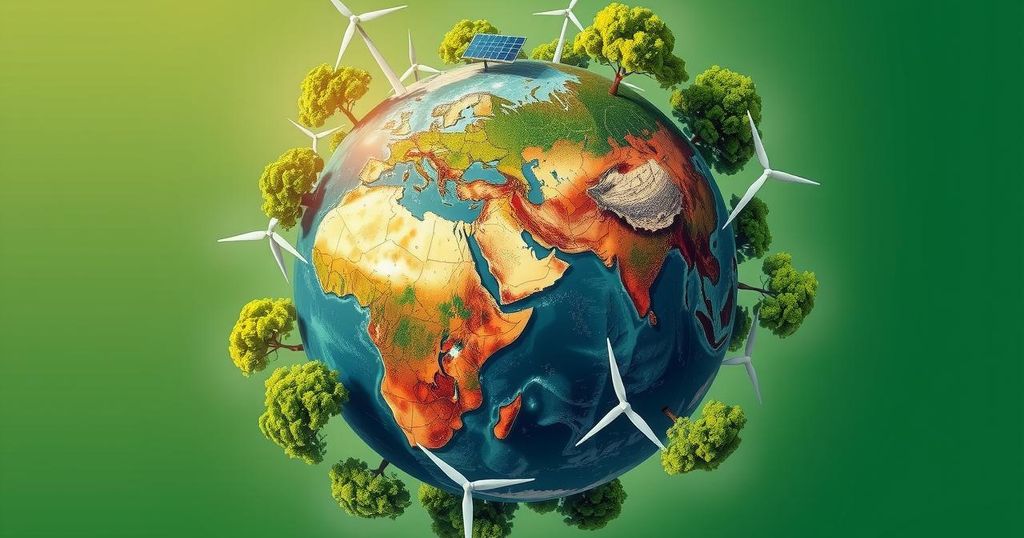Ana Toni, chief executive of Cop30, warns that countries must enhance their climate efforts to prevent future wars. She emphasizes the correlation between climate change, inequality, and global security. Nations are encouraged to integrate climate spending into defense budgets. The importance of balancing military expenditure with climate initiatives is critical, particularly for developing countries, as exemplified by Germany’s recent policies.
Countries striving to enhance their national security through increased military spending must concurrently strengthen their climate initiatives to mitigate the potential for future conflicts. Ana Toni, chief executive of Brazil’s upcoming Cop30 summit, emphasizes the intertwined nature of climate change and global security, asserting that climate change exacerbates inequality and poverty which could lead to wars.
Toni, who is instrumental in coordinating the Cop30 conference set for this year in Belém, Brazil, acknowledged that all countries will be required to submit robust plans aimed at reducing greenhouse gas emissions. However, these preparations are influenced by the current geopolitical landscape, particularly as developed nations react to fluctuating international relations and defense priorities.
In light of Donald Trump’s statements regarding defense policies and the withdrawal of the U.S. from the Paris climate agreement, Toni cautioned against treating defense and climate action as mutually exclusive. “Avoiding climate action will negatively impact future security,” she noted, urging for a balance between immediate military needs and the long-term imperative to combat climate change.
Recent developments, such as Germany’s commitment to allocate €100 billion to climate initiatives alongside enhanced defense expenditure, contrast with the UK’s approach of reducing overseas aid and investing in defense at the expense of climate funding. Toni criticized the UK’s measures, highlighting their detrimental effect on the ability of developing nations to address climate challenges.
Collaborating with the Azerbaijani government, Brazil is developing a framework to assist developed countries in fulfilling their commitment to provide $300 billion annually for climate finance to impoverished nations by 2035. Amidst these discussions, Toni reaffirmed global consensus on the necessity to shift from fossil fuels, indicating China’s ongoing decarbonization efforts irrespective of U.S. leadership dynamics under Trump.
In conclusion, the future of global security is closely tied to effective climate action as emphasized by Ana Toni, chief executive of Brazil’s Cop30. Nations must recognize that neglecting climate efforts risks exacerbating poverty and inequality, potentially leading to conflicts. A balanced approach that includes climate expenditure alongside defense spending is imperative to secure a sustainable future, particularly for developing countries. Collaboration and investment in climate initiatives are essential to address these pressing global challenges.
Original Source: www.theguardian.com






